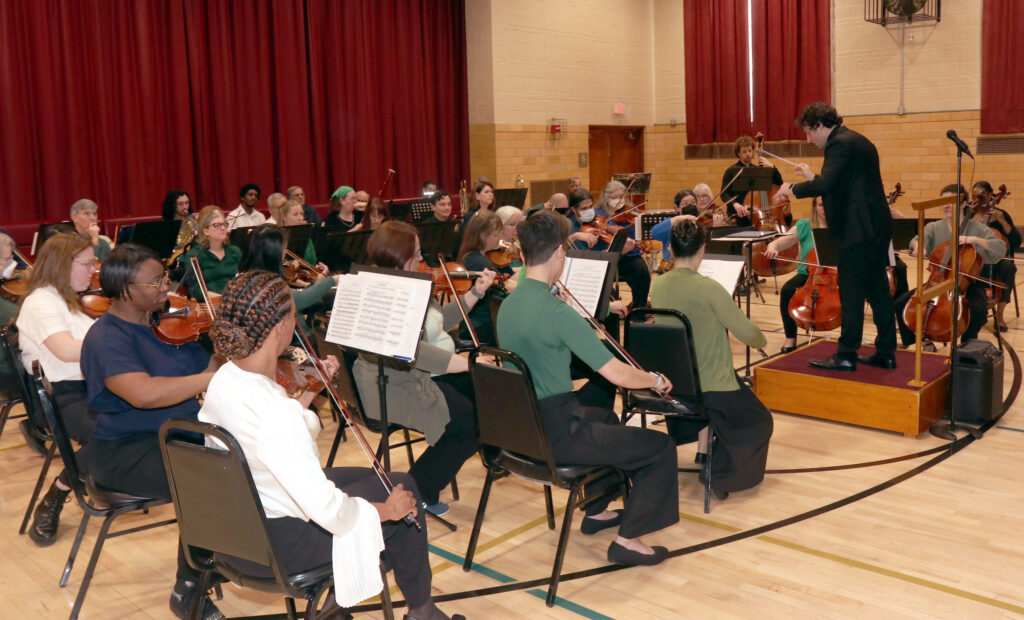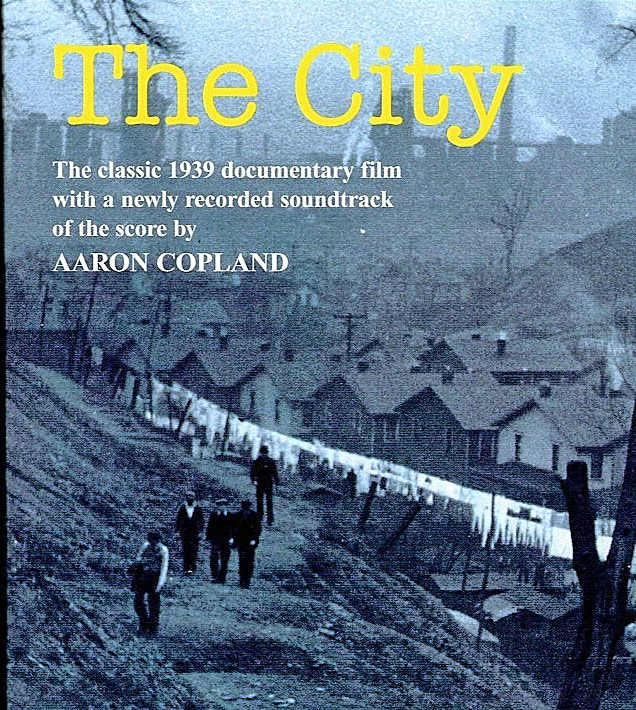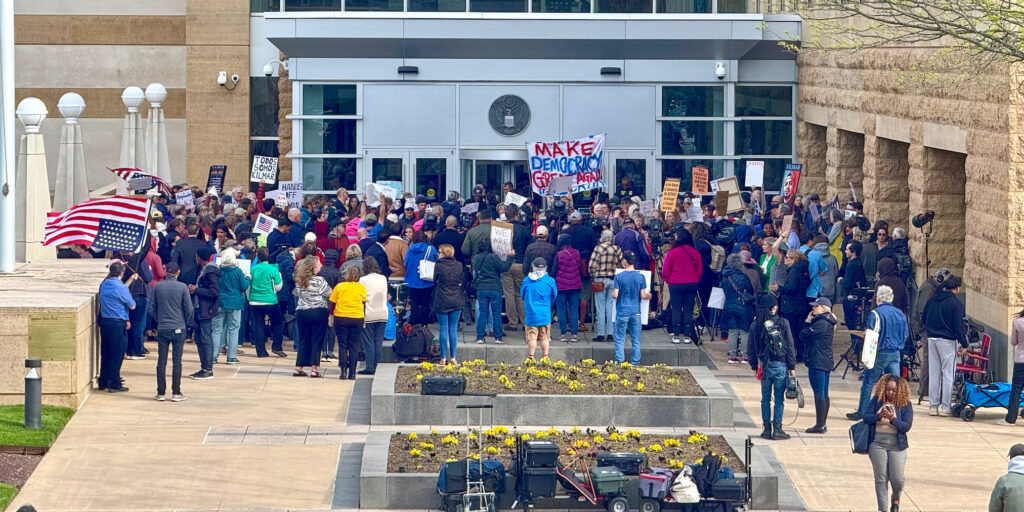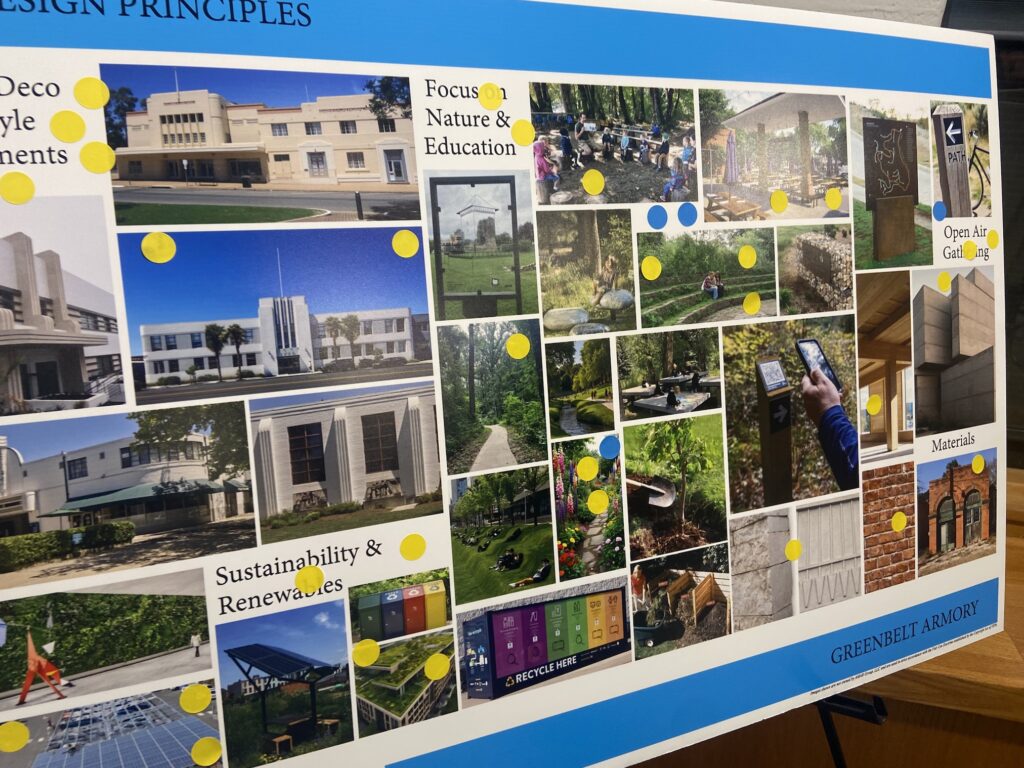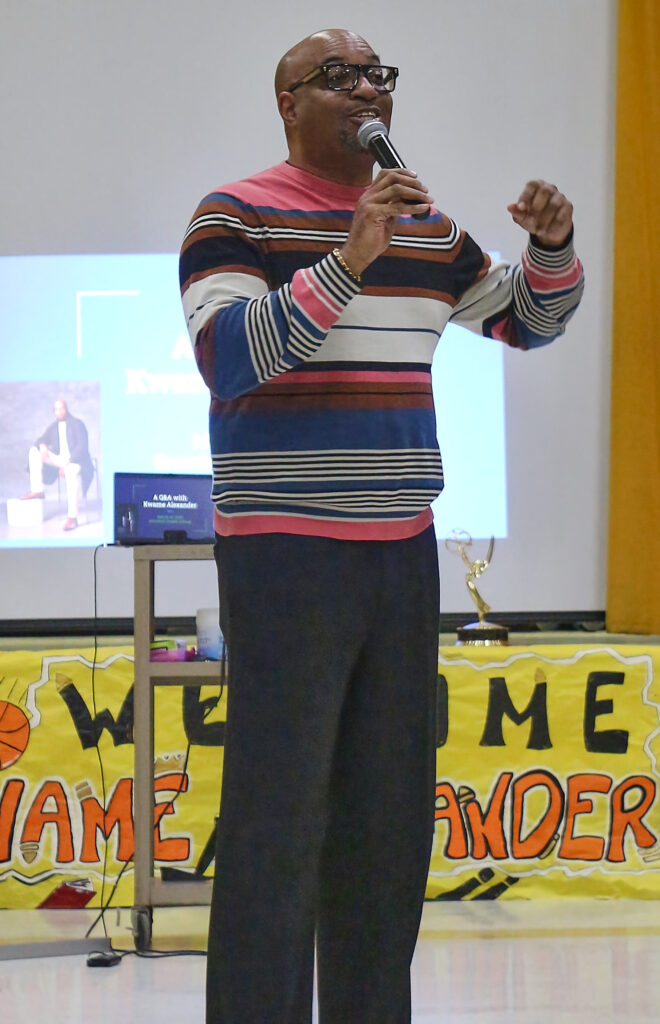Astonishing as it is to learn, a famous American composer wrote a theme song especially for Greenbelt.
In the 1930s, the federal government hired artists and incorporated their work into the efforts of the New Deal. For a promotional film called The City, Aaron Copland wrote the score. Key scenes of the movie were filmed in Greenbelt during the summer of 1938 – children riding their bikes, playing and swimming in the lake.
Greenbelt Cinema will host a ticketed showing of the film on Tuesday, May 21, and a small group of musicians from the Greenbelt Community Orchestra will play themes from Copland’s score. The entire suite of eight themes consists of 20 minutes of music, from which the film editors cut the soundtrack. The themes are entitled: New England Countryside, The Steel Mill, Sorrow of the City, Fire Engines (at lunch), Taxi Jam, Sunday Traffic, The New City and The Children. Sheila Maffay-Tuthill from the Greenbelt Museum will speak about the history of the film.
Orchestra conductor Derek Maseloff described Copland’s Greenbelt theme as pleasant and bucolic. Greenbelt is portrayed as a utopian New City, “where everything is fun, and we hang out with our neighbors.” “This sort of characteristic still exists in Greenbelt,” said Maseloff. He described The Children as a different musical theme, more grand and sweeping, suggesting that, “It’s up to the children to design the city of the future.”
Orchestra members watched a screening of the film, which can also be seen on DVD (available at the Greenbelt Museum). “The music tells the story of the film,” orchestra organizer Anne Gardner pointed out. At the screening, orchestra members learned how the themes they are practicing relate to the film’s visual images. One musician noted that the dystopian themes of the “old” city, portrayed as dirty, crowded and “blighted,” resembled Philip Glass and Michael Koenig’s score to the 1982 polemical movie Koyaanisqaatisi – Life out of Balance. The theme for Sunday Traffic illustrates being stuck in traffic jams with horns going. “What is all this crazy noise? It’s also factories and heavy industry,” Maseloff and Gardner noted. In opposition, The City shows a Greenbelt bus driving cheerfully down a sunny parkway, carrying men to their work. Also a polemical film, it pushes the agenda of the clean, new planned city in comparison to the old, and the viewer should take care to note that polemical films do not tell the whole story (like the fact that people of color were excluded from settling in Greenbelt).
On June 2, in celebration of Greenbelt Day weekend, the full orchestra will perform the suite, in an afternoon that includes a naturalization ceremony for new citizens and a band concert. The orchestra will play a more musically coherent version of what Copland actually wrote, as opposed to the themes as cut for the film soundtrack. Maseloff said, “This music gets chopped up and rearranged for the film, with jarring cuts as it randomly switches between scenes.”
In preparing to play The City, the Greenbelt Community Orchestra partnered with the Concert Band to add in some needed instruments, including additional percussion. “Literally the bells and whistles,” Gardner quipped. Together, the two groups purchased a xylophone.
The orchestra had to pay for the rights to perform the piece and rent the sheet music, which is handwritten probably because people so rarely perform it that they haven’t typeset it. “The orchestra has figured out the idiom of Copland,” Maseloff said. “He developed an American style: a little bit folksy, catchy little tunes, mixed meter, complex rhythms. In my short time as the conductor, this is the most exciting project we’ve done. We are the inheritors of this music, because this music was composed for the town and we are musical representatives of the town.” About half of the orchestra are Greenbelt residents.
The orchestra looks forward to performing a more diverse repertoire, including music by women and people of color, instead of relying mostly on the more commonly performed canonical works where musicians can print their own parts from the public domain. To play more diverse music, the orchestra has achieved nonprofit status and has applied for a city grant to give a concert consisting entirely of music by Black composers during Black History Month 2025. To support Greenbelt Community Orchestra, make donations through the website at greenbeltorchestra.org.
